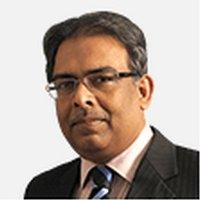Stan Swamy: The oldest person to be accused of terrorism in India
- Published
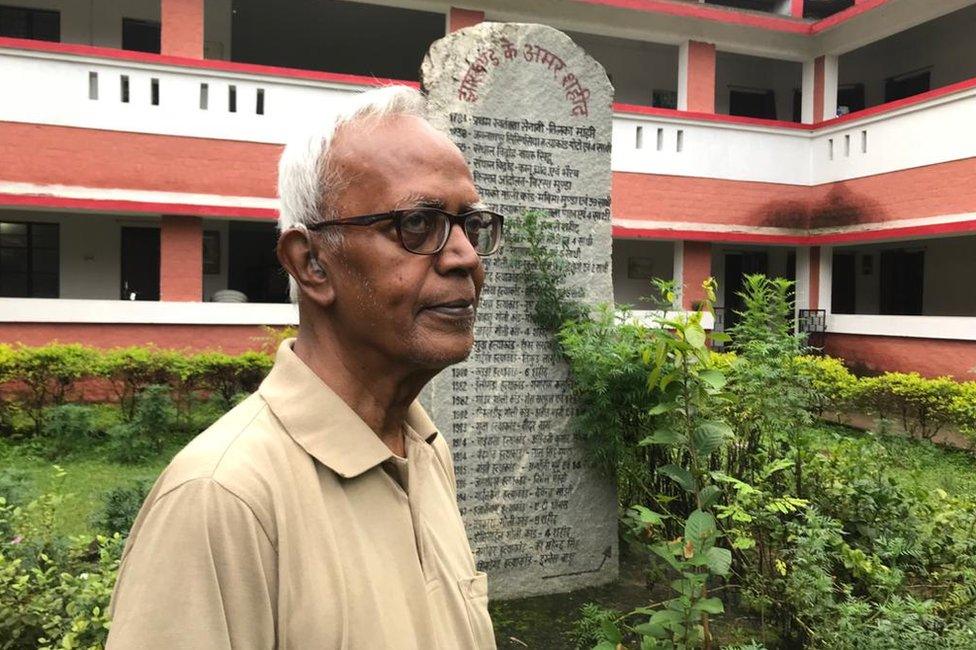
Father Swamy has been working with tribespeople for three decades
On Thursday evening, detectives from India's National Investigation Agency arrived in an SUV at a red and white building on the outskirts of Ranchi in India's eastern state of Jharkhand.
There they picked up Father Stan Swamy, an ailing 83-year-old activist and Jesuit priest. They seized his mobile phone and asked him to pack a bag. They then drove him to the airport and boarded a flight to Mumbai, where Father Swamy was remanded to judicial custody until 23 October.
He is now the oldest person to be accused of terrorism in India.
The National Investigation Agency (NIA), which deals with anti-terror crimes, arrested him in connection over a 2018 incident of caste-based violence and alleged links with Maoists. The rebels, who are active in several eastern and central states, claim that they are fighting for communist rule and greater rights for tribal people and the rural poor.
In a video, external recorded days before his arrest, Father Swamy said detectives had questioned him for 15 hours over five days in July. They had produced "some extracts" allegedly taken from his computer that pointed to his links with Maoists, he said. He disowned them, saying they were "fabrications" that were "stealthily" put into his computer. His advanced age, health complications, and the raging pandemic would make it difficult for him to travel to Mumbai, he told the detectives. He hoped "human sense would prevail", he said.
Between June 2018 and now, Prime Minister Narendra Modi's BJP government has jailed 16 people in connection with the 2018 violence in Bhima Koregaon village in Maharashtra state. They include some of India's most-respected scholars, lawyers, academicians, cultural activists, and an ageing radical poet, who then contracted Covid-19 in prison.
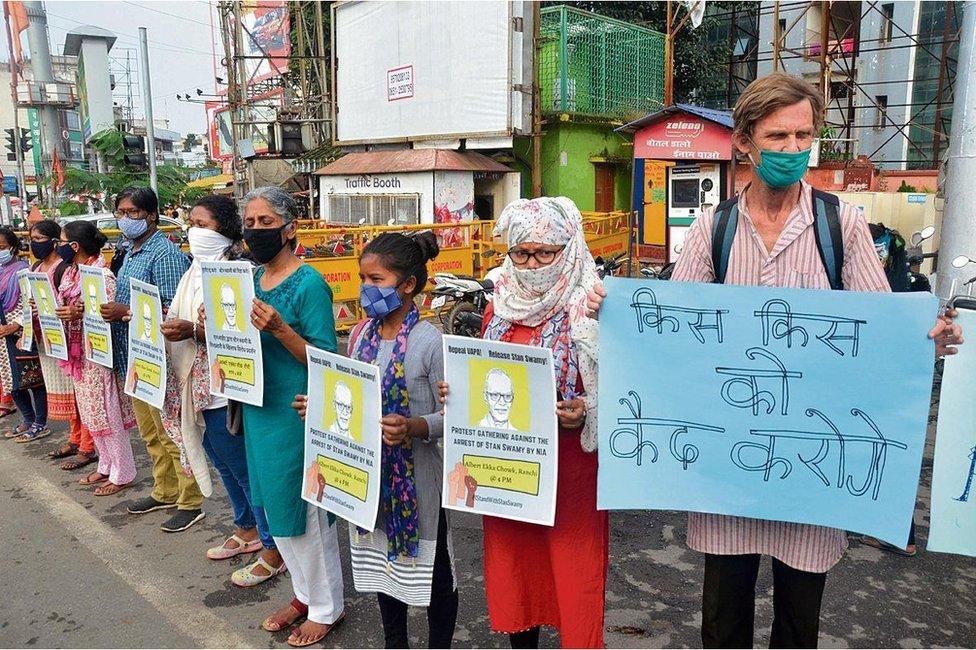
There have been protests against Father Swamy's arrest
They have all been repeatedly denied bail under a sweeping anti-terror law, which many observers believe is now being mainly used to crack down on dissent.
"This is absolutely appalling. The repression on human rights defenders has never been more extreme in India," said Sangeeta Kamat, a public policy professor at the University of Massachusetts, Amherst.
Ms Kamat said it was comparable to 1975, when Prime Minister Indira Gandhi declared a state of emergency, curbing civil rights and imposing censorship.
"This is far more dangerous as it's an undeclared Emergency," she said.
Father Swamy had been in the crosshairs of investigating agencies for some time. Over the past two years they had raided his house twice, he said in the video, to "somehow prove" that he was linked to "extremist Leftist forces". But people who know the soft-spoken, low profile activist say he has devoted his life to the uplift of tribespeople ever since he moved to Jharkhand in 1991.
Created in 2000 to protect the rights of indigenous tribes or adivasis, Jharkhand is a tragedy. The region has long been a hotbed of Maoist violence and recurrent drought - more than 5% of its working-age population migrates every year in search of education or work.
Jharkhand is home to 40% of India's precious minerals, including uranium, mica, bauxite, gold, silver, graphite, coal and copper. But development has been uneven and has come at the cost of its tribespeople, who comprise more than a quarter of the state's 30 million residents.
Like their counterparts across India, they remain an "invisible and marginal" minority. Despite affirmative action and improved access to welfare, most of them continue to eke out a miserable existence in heavily forested, mineral-rich states.
India's tribes suffer from a "triple resource crunch", says historian Ramachandra Guha, living as they do in the "densest forests, along with its fastest-flowing rivers and atop its richest veins of iron ore and bauxite".
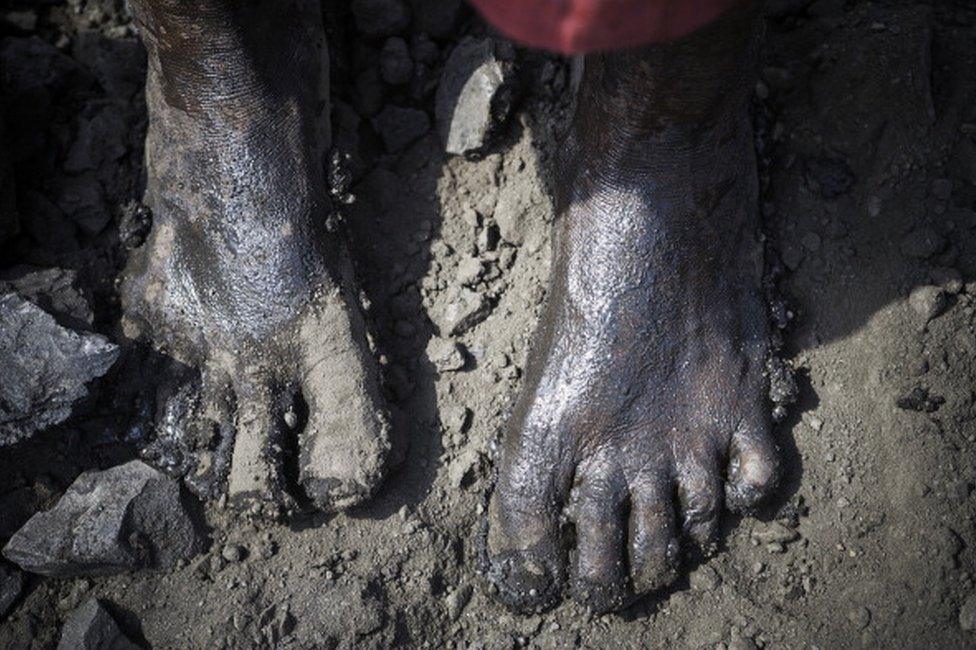
Many of Jharkhand's tribespeople work in coal mines
And it's them that Father Swamy has tirelessly fought for, his associates say.
He moved the high court seeking the release of 3,000 young men and women who have been languishing in prison after being branded as Maoists. He trekked to remote tribal villages to inform them of their rights. He told them how mines, dams and townships were being built without their consent, and of how they had been deprived of land, often with no compensation. He openly sympathised with a 2018 rebellion of tribespeople,, external asserting their rights over their resources and common land. He regularly wrote articles on how big corporations were taking over tribal land for factories and mines.
Since Independence, more than 1.7 million Indians have been displaced after their land was taken for power stations, irrigation projects and factories.
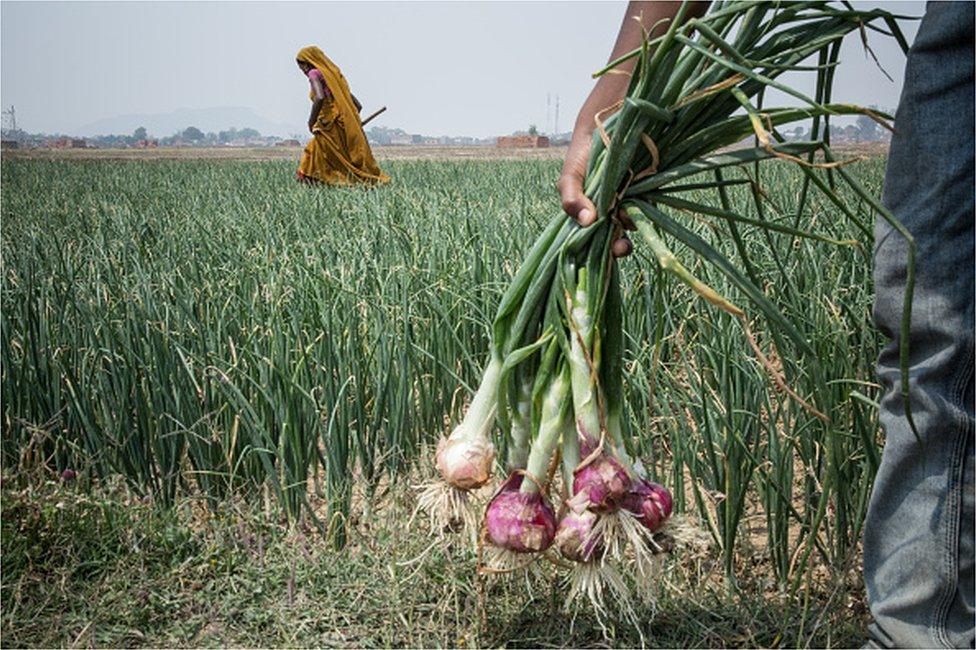
India's tribes are among its poorest and most disadvantaged groups
Despite his deteriorating health, Father Swamy never missed an opportunity to speak up for tribespeople. He has survived a bout of cancer and three surgeries. His hands shake uncontrollably - doctors have not been able a make a diagnosis yet - and food is always served to him. He sips his favourite tea through a straw from a cup placed in front of him. A few years ago, he participated in a march to protest against a spate of lynchings, trying to hold a placard with his shaking hands. "Such is his spirit and commitment," said Siraj Dutta, a local activist.
Jean Dreze, a Belgian-born Indian development economist who's known Father Swamy for over a decade, described him as a "gentle and honest man, always on time, secular and committed to his causes".
"He might have helped people with association or sympathy with Maoists, which is not uncommon in a place like Jharkhand. That doesn't make him a Maoist. His arrest is part of a larger effort to undermine opposition," Dr Dreze said. "He is now being treated like the people he has been trying to defend all his life."
Much of Father Swamy's activism, his friends say, was seeded during his time at the University of Manila. He told friends how he was inspired by the people's movement to overthrow the corrupt and brutal regime of President Ferdinand Marcos. As a postgraduate student in Brussels, he met the radical Brazilian educator, Paulo Freire, an advocate of teaching critical thought in schools. And even after returning to India, he kept in touch with people's movements in Latin America and read voraciously.
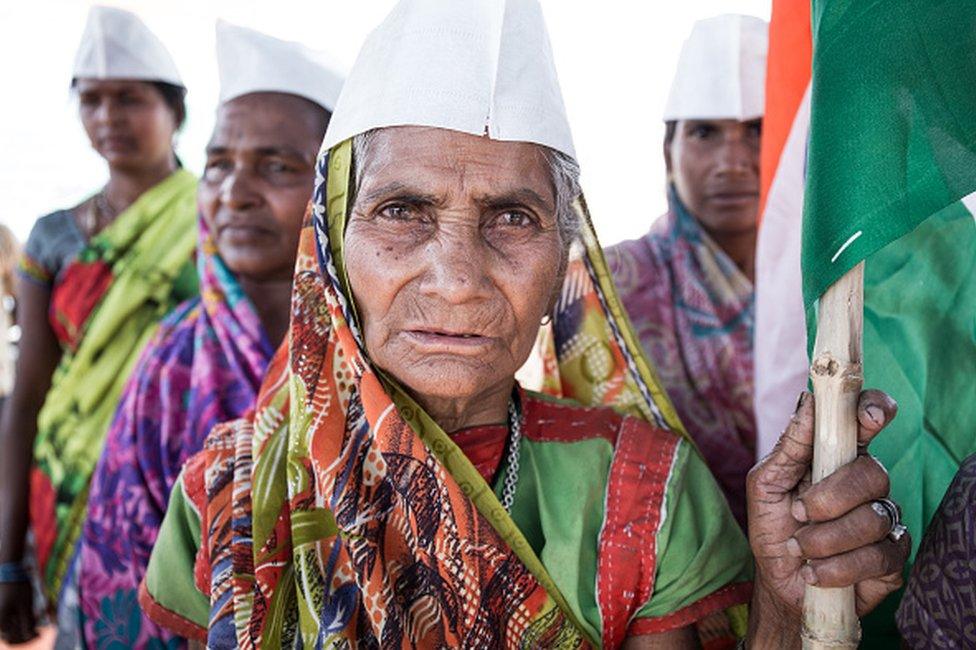
Tribespeople in Jharkhand have protested for long over land and resources
The son of a farmer father and homemaker mother from the southern state of Tamil Nadu, he led a school for training leaders of marginalised communities in Bangalore for more than a decade. "For Stan, people were more important than anything else. He leapt across the wall of church institutions to be with the people," Xavier Dias, a friend and activist, told me.
He was also stoical about loss. Two months ago, his nephew died of Covid-19 in Chennai. A few days later, his nonagenarian sister passed, of "sorrow, possibly", according to Father Swamy. "This is my personal loss, but when so many people are dying of the disease, we have to think about their losses too," he told Mr Dias.
At a dinner at Mr Dias's home, weeks before the NIA came for him, the two discussed the future and fears about an impending arrest.
"My bags are packed and I am ready to go," Father Swamy told his host.

Read more stories by Soutik Biswas

- Published29 August 2018
